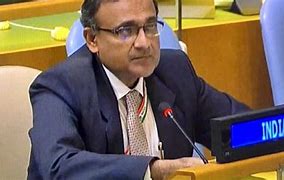UNITED NATIONS: India has abstained on a UN General Assembly resolution on Myanmar, saying its views have not been reflected in the draft and New Delhi does not believe the resolution, tabled hastily, is conducive to “aiding our joint efforts towards strengthening democratic process” in the country.
The UN General Assembly adopted the draft resolution ‘The situation in Myanmar’ on Friday with 119 Member States voting in favour, including Myanmar while 36 nations abstained, including Myanmar’s neighbours – India, Bangladesh, Bhutan, China, Laos, Nepal and Thailand. Russia also abstained.
Belarus was the sole country voting against it.
“This resolution was tabled in the UN General Assembly in a hasty manner without adequate consultations with neighbours and regional countries. This is not only unhelpful but may also prove counter-productive to the efforts of the ASEAN to find a solution to the current situation in Myanmar,” India’s Permanent Representative to the UN Ambassador TS Tirumurti told PTI.
In the explanation of the vote in the General Assembly hall, Tirumurti said as Myanmar’s immediate neighbour and close friend of its people, India is cognizant of the “serious impact of political instability” and the potential of its spillover beyond Myanmar’s borders.
India has been calling for greater engagement with the objective of peacefully resolving all issues.
“We already have such an ongoing initiative under the aegis of ASEAN (Association of Southeast Asian Nations). It is important that we extend support to the ASEAN efforts,” Tirumurti said.
“During the discussions on this resolution, we had engaged in a spirit of finding a constructive and pragmatic way forward and had accordingly shared our suggestions to those who piloted this resolution,” he said.
“However, we find that our views have not been reflected in the draft being considered for adoption today. We would like to reiterate that a consultative and constructive approach involving the neighbouring countries and the region, remains important as the international community strives for the peaceful resolution of the issue,” Tirumurti said.


